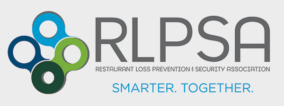Loss prevention (LP) programs require monetary output for potential safety and security measures such as buying and installing CCTV cameras or implementing access systems. Such programs also demand an investment of time and effort on the part of the entire organization for activities such as training security guards or involving multiple departments in the risk management processes.
While loss prevention professionals and restaurant owners understand the need for additional security, many are scrambling to get the most “bang for their buck” when it comes to investing in or updating their security systems.
LP Program Considerations
Millions of people are employed in the food industry—with good reason. One out of every four adults eats in a restaurant on a typical day. Due to the sheer volume of business conducted on a daily basis, the high number of people employed by the industry, and the magnitude with which consumers frequent these establishments, LP professionals have a lot to consider when designing effective loss prevention and physical security programs. This would include:
– Risk management
– Securing property
– The safety of customers
– The safety of employees
– Employee theft
– Robbery
– Lighting
– Security cameras or other monitoring devices
– Cash protection
– Credit card protection
– Alarm systems
– Crisis management
– Honesty policies
– Loss reporting
– Training
– Environmental design for safe workplaces
– Food safety
– Privacy issues
– Legal concerns
– And more!
There is simply no “one” LP program that is right for every company. An effective loss prevention program will depend on many variables from the number of employees in your organization to the number of people you service. It will also depend on such factors as the vulnerability of your company to security breaches, the specific location or locations, the ease with which those with malicious intent can gain access to your records, or even something seemingly as easy to fix as proper outdoor lighting.
There are many components to consider, but the best security programs are typically designed by loss prevention professionals who have a deep knowledge base. Active and consistent learning experiences that review the risks and vulnerabilities of the restaurant industry will inform and enlighten those given the daunting task of designing an effective LP program for their company.
Physical Security 101
All physical security plans must be thought through and designed very carefully. There are no “easy fixes” to our physical security challenges, and we should approach these tasks with an open mind and a global perspective. We should never hesitate to get a second opinion, especially from someone in the legal profession.
Let’s take a closer look at an example: A restaurant owner decided to solve the vandalism problem in the bathrooms of his restaurant by installing security cameras to monitor the activities in the facilities. (The installation was designed to monitor the general or common area, not the stalls). While the owner did not post any signs indicating that the cameras were in use, when his regular customers noticed the cameras, they stated that they felt he was right to take this action. However, it only takes one customer to disagree. The restaurant is currently under investigation and the owner could face a misdemeanor crime for infringing upon a person’s “reasonable expectation of privacy” in various areas of a business.
The LP 101 lesson: If you install a monitoring device, make sure you know and understand your rights and the rights of the public (to include all jurisdictional laws/ordinances), make sure the device installed is in a public area, alert all employees to the presence of the security camera and its purpose, keep surveillance to just video footage, consider having employees submit signed acknowledgements that they have been made aware of the monitoring device as part of their hiring paperwork, and post signs. Audio is more legally problematic and should be avoided.
All of these steps will also help reduce internal theft, as employees will become more aware the store is being monitored.
Learn More in Vegas
Looking for a great way to become better informed? Attend the 2015 RLPSA Annual Convention, August 2-5, in Las Vegas. You can learn from the General Session presentation: Evolution of the Restaurant LP/Security Professional by Van Carney, National Director, Safety and Loss Prevention at Domino’s, Rob Holm, Sr. Director, U.S. Operations-Security at McDonald’s Corporation, and Mike Keller, Manager, Loss Prevention at Panera Bread who will speak on the complicated functions of LP professionals and the skills necessary to address these challenges. You can also attend a session about crime prevention through environmental design.
Learn the facts and implications of developing effective loss prevention and physical security plans!
I look forward to networking with you in Vegas!
Jeff Levitt LPC, CPP is Senior Manager of Loss Prevention for Panera LLC. He currently serves on the Board of Directors for Loss Prevention Foundation, where he is a charter member. Jeff formerly served on the NFSSC Board of Directors, and is currently Vice Chairman of the ASIS Retail Council. He holds a Bachelor of Arts in Mass Communication/Advertising from California State University – Heyward.
